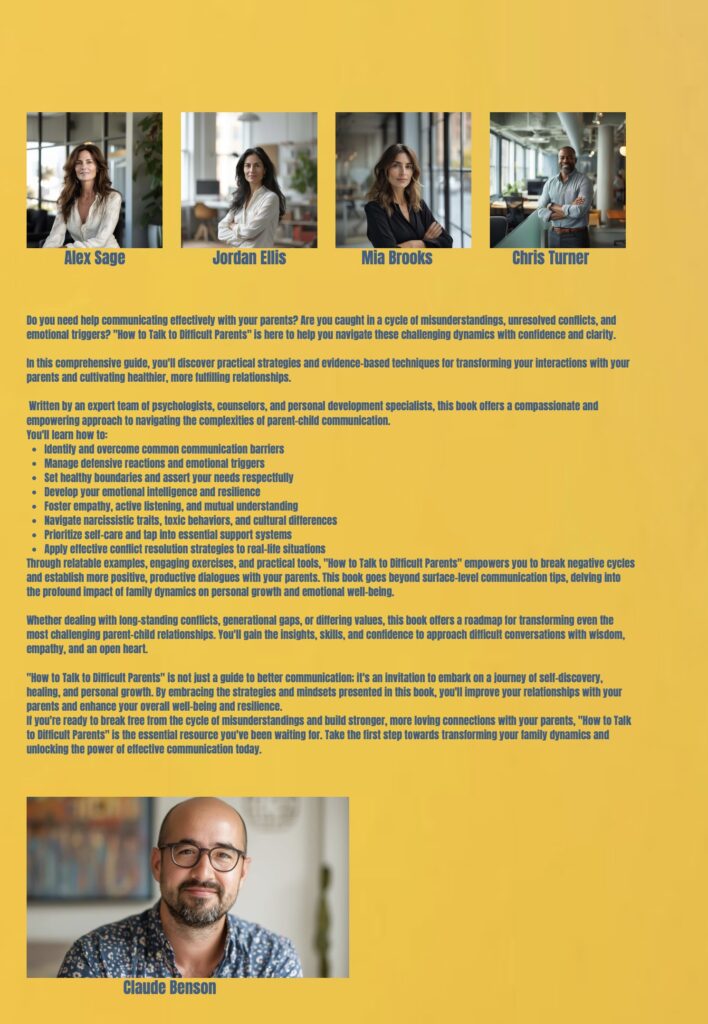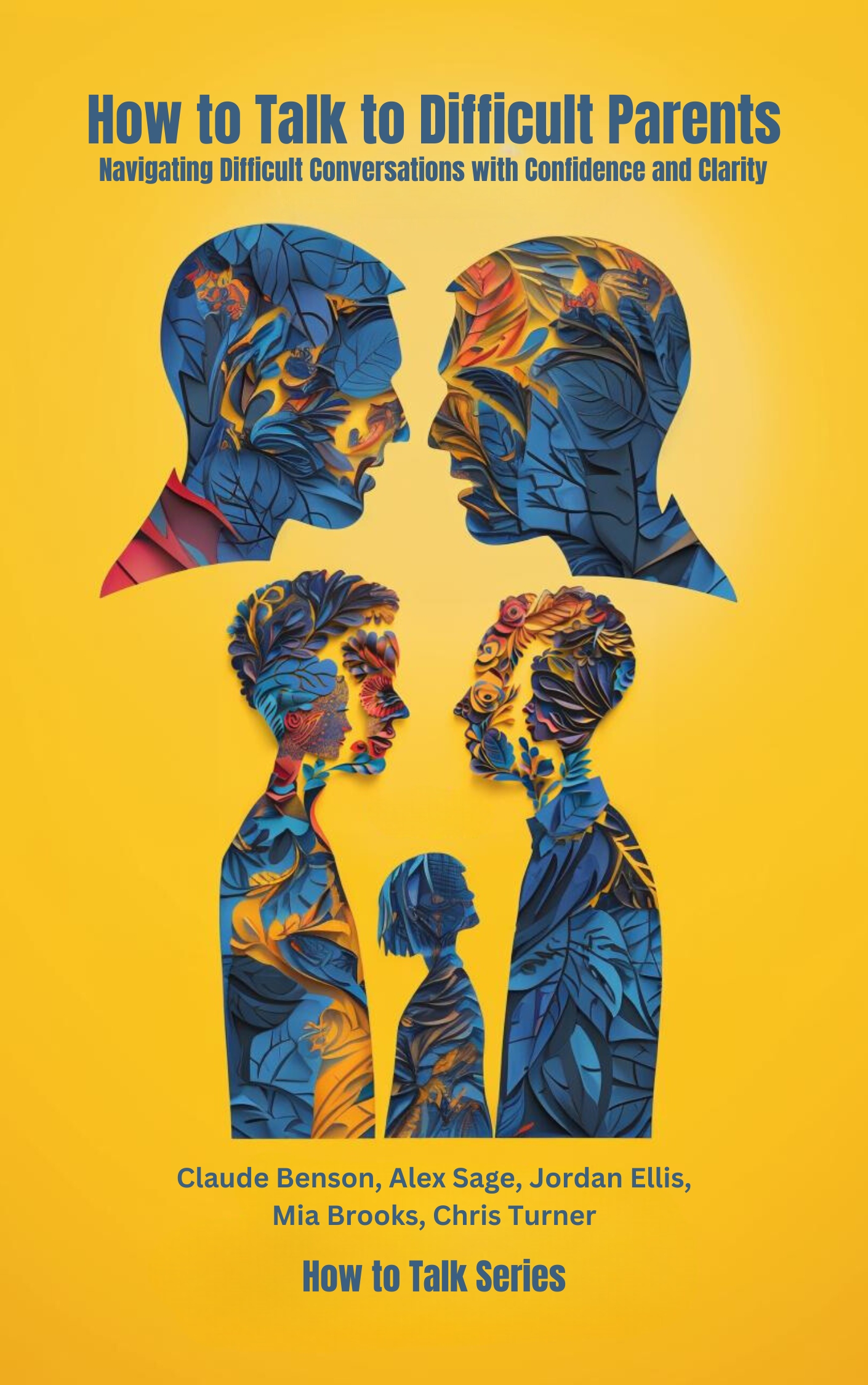This insightful and practical guide delves into the complexities of parent-child communication, offering strategies for navigating even the most challenging family dynamics. Combining their expertise in psychology, counseling, and personal development, the authors provide a comprehensive roadmap for fostering healthier, more fulfilling relationships between adult children and their parents.


Key Strengths:
- Comprehensive Approach: The book takes a holistic view of parent-child relationships, exploring the impact of generational differences, cultural backgrounds, emotional triggers, and communication patterns. It provides a nuanced understanding of the multi-faceted nature of these dynamics.
- Practical Strategies: Beyond theoretical insights, the book offers actionable techniques for improving communication, setting boundaries, managing emotions, and resolving conflicts. Readers can immediately apply these tools to their interactions with difficult parents.
- Emphasis on Personal Growth: The authors recognize that enhancing parent-child relationships is an ongoing journey of self-discovery and growth. They encourage readers to cultivate self-awareness, emotional intelligence, and resilience, empowering them to thrive despite familial challenges.
- Balanced Perspective: The book acknowledges the complexities of family dynamics, offering a balanced approach that combines empathy for parents’ experiences with strategies for asserting one’s needs and boundaries. It guides readers to find a middle ground between personal well-being and familial harmony.
- Accessible Writing Style: Despite tackling complex psychological concepts, the authors present their ideas clearly and engagingly. Using real-life examples, reflective prompts, and practical exercises makes the content relatable and easy to digest.
Potential Limitations:
- Breadth vs. Depth: Given the wide range of topics covered, some readers may find that certain issues are not as in-depth as they would like. However, the book provides a solid foundation for understanding and addressing the core challenges in parent-child relationships.
- Cultural Diversity: While the book does address cultural differences, it may not fully capture the nuances of every cultural background. Readers from diverse backgrounds may need to adapt the strategies to suit their cultural contexts.
Conclusion: “How to Talk to Difficult Parents” is a valuable resource for anyone seeking to improve their relationship with their parents. The authors provide a comprehensive guide to navigating the complexities of parent-child dynamics by combining psychological insights, practical strategies, and a compassionate approach. The book empowers readers to break negative cycles, establish healthy boundaries, and cultivate more meaningful connections with their parents. It is a must-read for those committed to personal growth and building stronger, more resilient family bonds.





